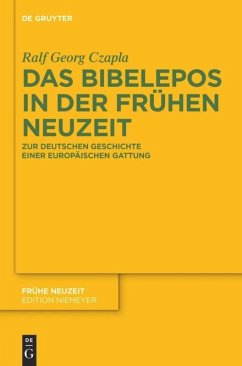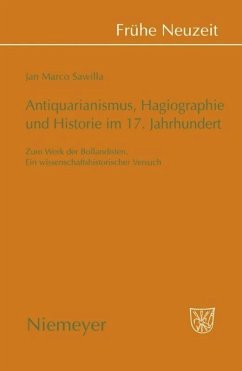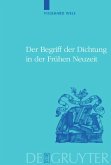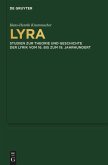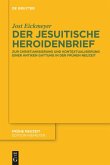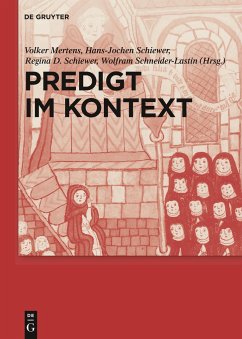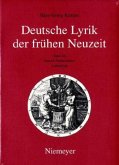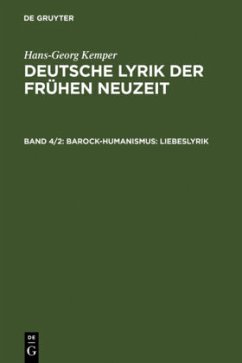Since Late Antiquity the biblical epic has been one of the most lively literary genres. It was practised not only in scholarly but also popular languages. This study deals with biblical epic in the Early Modern Age, a subject that has been neglected to date. Chronologically it follows on from the fundamental works of Herzog and Kartschoke. It looks not just at theoretical aspects of the genre, but also at questions of the forms and functions of European biblical epic and the reception of biblical content. A repertory of the genre is arranged according to systematic aspects.
Als Vermittler zwischen dem lateinischen Epos, wie es in Vergils "Aeneis" idealtypische Form gefunden hat, und der Bibel als dem Buch der für Christen einzigen und unverbüchlichen Wahrheit gehört das Bibelepos seit der Spätantike zu den vitalsten literarischen Genera. Es wurde sowohl in der lateinischen Gelehrtensprache als auch in den Volkssprachen gepflegt und bildete mit der Epyllion, der Versparaphrase, der Harmonie und dem am "ordo artificialis" orientierten Epos im engeren Sinne qualitativ wie quantitativ unterschiedene poetische Formen aus.
Die vorliegende Studie widmet sich der von der Forschung bislang vernachlässigten Bibelepik vom Beginn des Buchdrucks bis zum Ende des Dreißigjährigen Krieges und unternimmt eine Einbettung der zum überwiegenden Teil in den protestantischen Territorialstaaten Deutschlands entstandenen epischen Bibeldichtungen in den Kontext einer europäischen Gattungsgeschichte. Zeitlich schließt sie an die grundlegenden Arbeiten von Herzog und Kartschoke an. Neben gattungstheoretischen Überlegungen werden Fragen nach Formen und Funktionen europäischer Bibelepik und nach der Rezeption von Bibelstoffen erörtert. Ein ausführliches Repertorium erschließt das Genre unter systematischen Aspekten.
Als Vermittler zwischen dem lateinischen Epos, wie es in Vergils "Aeneis" idealtypische Form gefunden hat, und der Bibel als dem Buch der für Christen einzigen und unverbüchlichen Wahrheit gehört das Bibelepos seit der Spätantike zu den vitalsten literarischen Genera. Es wurde sowohl in der lateinischen Gelehrtensprache als auch in den Volkssprachen gepflegt und bildete mit der Epyllion, der Versparaphrase, der Harmonie und dem am "ordo artificialis" orientierten Epos im engeren Sinne qualitativ wie quantitativ unterschiedene poetische Formen aus.
Die vorliegende Studie widmet sich der von der Forschung bislang vernachlässigten Bibelepik vom Beginn des Buchdrucks bis zum Ende des Dreißigjährigen Krieges und unternimmt eine Einbettung der zum überwiegenden Teil in den protestantischen Territorialstaaten Deutschlands entstandenen epischen Bibeldichtungen in den Kontext einer europäischen Gattungsgeschichte. Zeitlich schließt sie an die grundlegenden Arbeiten von Herzog und Kartschoke an. Neben gattungstheoretischen Überlegungen werden Fragen nach Formen und Funktionen europäischer Bibelepik und nach der Rezeption von Bibelstoffen erörtert. Ein ausführliches Repertorium erschließt das Genre unter systematischen Aspekten.

